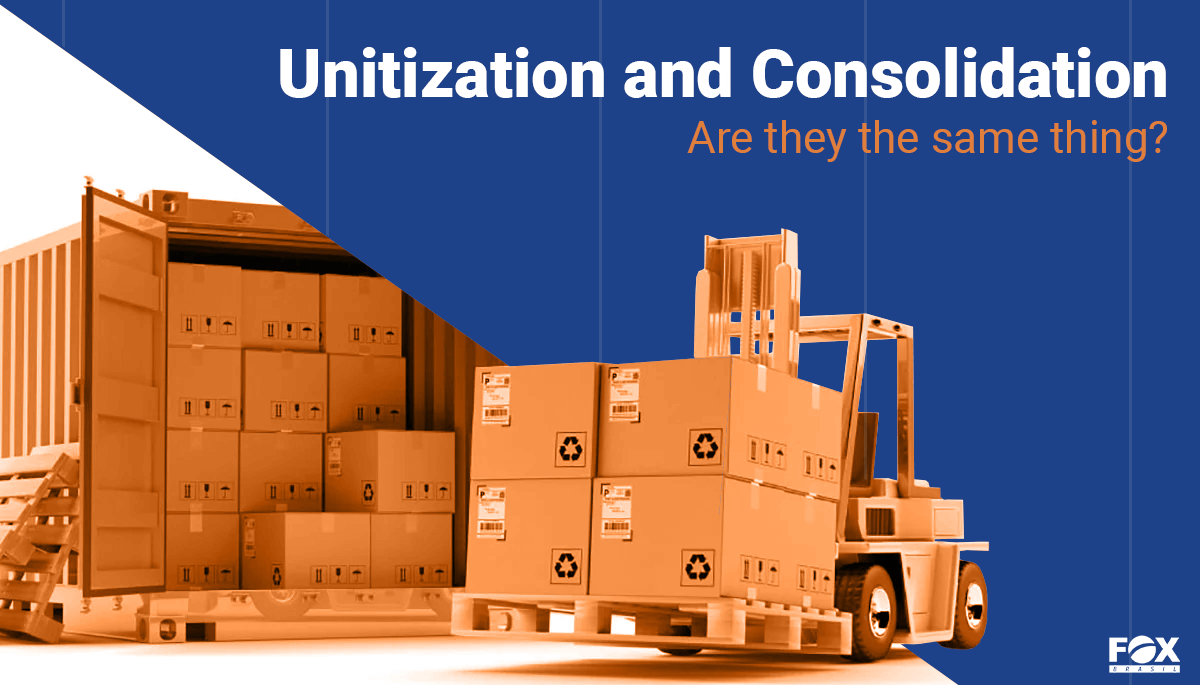Unitization and Consolidation: Are they the same thing?

Understand Logistics & Freight
In the intricate world of cargo logistics, optimizing transportation methods is paramount for efficiency and cost-effectiveness. Two key strategies that play a pivotal role in this regard are unitization and consolidation and, as much as these concepts are commonly seen as synonyms, they are actually distinct in practice and in what they’re trying to achieve.
In this blog post, we will delve into the nuances of these approaches, highlighting their differences and exploring the advantages each of them brings to cargo transportation.
Unitization: Enhancing Handling and Security
Definition: Unitization involves combining individual items or packages into a single, larger unit for ease of handling and transportation. The goal is to create a single, manageable unit that can be moved and transferred more efficiently.
Examples: Pallets, containers, and trailers are common forms of unitization. Goods are often loaded onto pallets or into containers, securing them as a single unit. This streamlines the loading and unloading process, reduces the risk of damage, and enhances overall efficiency.
Advantages:
- Faster loading and unloading processes.
- Reduced risk of damage during handling.
- Improved security during transportation.
- Streamlined inventory management.
Consolidation: Maximizing Efficiency and Cost Savings
Definition: Consolidation involves combining multiple smaller shipments from different shippers into a single, larger shipment. This is often done to achieve economies of scale and reduce transportation costs by optimizing cargo space.
Examples: Freight forwarders or consolidators gather smaller shipments from various suppliers and combine them into a larger shipment. This consolidated shipment is then sent to its destination, where it is deconsolidated for final distribution.
Advantages:
- Cost savings through efficient use of cargo space.
- Lower shipping costs for individual shippers.
- Improved efficiency in transportation.
Want to know more about cargo consolidation? Check out this earlier blog post dedicated exclusively to this practice.
Unitization versus Consolidation: A practical comparison
Focus:
- Unitization focuses on the physical packaging and handling of individual items.
- Consolidation focuses on optimizing the transportation process by combining multiple smaller shipments.
Purpose:
- Unitization aims to make the handling and transportation of goods more efficient and secure.
- Consolidation aims to achieve cost savings and efficiency by combining smaller shipments into a larger, more economical one.
Application:
- Unitization is applied at the level of individual items or packages.
- Consolidation is applied at the level of shipments, combining multiple shipments into one.
Unitization and Consolidation: Working Hand-in-Hand
In real-world scenarios, unitization and consolidation often complement each other to maximize the benefits. For instance, goods can be unitized into containers, and these containers can then be consolidated to create a more economical and efficient shipping solution. Understanding the nuances of these strategies is vital in navigating the complex world of cargo logistics. Embracing a well-balanced approach that incorporates both unitization and consolidation can be the key to achieving optimal efficiency and cost-effectiveness in your cargo operations.